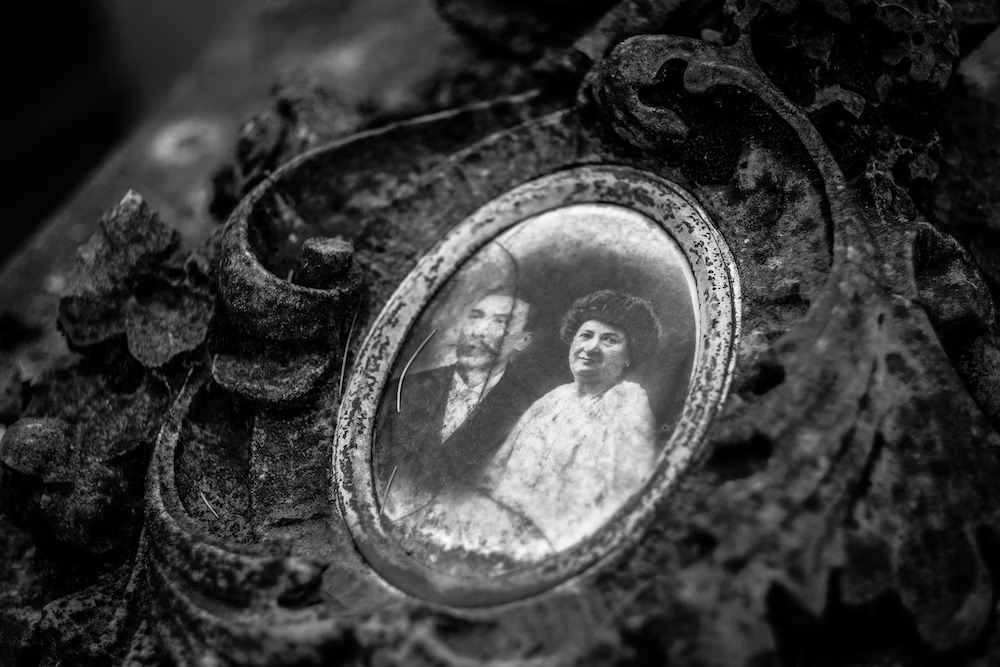Life History Research

- Introduction
- What is life history research?
- What are examples of life history?
- What is the life history research method?
- Advantages and challenges of life history research
- Practical tips for conducting life history research
- Comparing life history research with other qualitative methods
- Useful resources
Life histories are an important aspect of qualitative research that focus on a particular person in a comprehensive manner. Rather than look at a population or a culture at scale, the life history method looks at the story of a single individual, both from their own perspective and the perspective of others around them. While research is often useful in developing universal theories or greater contextualization at scale, life histories can also influence current and future reproduction of knowledge by investigating a single subject as deeply as possible.
What is life history research?
Life history research is a qualitative research method that looks into the individual and collective experiences of people, providing an in-depth understanding of their life trajectories from their perspective. It involves collecting detailed accounts of lived experiences, personal narratives, memories, and reflections of individuals or groups across various time frames.
The life history approach finds its roots in anthropology and sociology, which have long been concerned with understanding the intricacies of human experience in context. Anthropologist Franz Boas utilized this approach to better comprehend an individual over their entire life span. In sociology, life history research became prominent through the work of the Chicago School in the early 20th century, which used personal narratives to understand the social phenomena of the time.

Philosophically, life history research aligns with the interpretivist paradigm, where reality is understood to be subjective, multifaceted, and constructed through individual experiences and societal interactions. The focus is on 'emic' or insider's perspectives, recognizing that the meanings people attach to their experiences are of utmost importance.
Life history research seeks to uncover the complexities, contradictions, continuities, and changes that constitute an individual's or group's life. Its central objective is to create a nuanced, holistic, and contextualized understanding of people's lived experiences. It aims to unveil the rich interplay between personal experiences and broader social, cultural, and historical structures. By interweaving individual narratives with social constructs, life history research can reveal how macro-level phenomena affect micro-level experiences and vice versa.
This approach is particularly useful for exploring less tangible aspects of life such as values, beliefs, motivations, emotions, identities, and the underlying meanings of actions. Moreover, life history research often brings to light marginalized or silenced voices, providing insights into diverse experiences and perspectives.
Among life history traits, the emphasis on narratives or stories is a key element. Narratives are not merely a record of facts and events but are imbued with individual interpretations and meanings. Researchers view people's own life stories as interpretive narratives that individuals construct to make sense of their life. These narratives provide a medium to understand the intricacies of the human experience, capturing the dynamics of the past, the present, and the future. They reveal how individuals negotiate and construct their identities, make sense of their past, navigate their present, and envision their future.

Life history research is characterized by its methodological flexibility. While it is guided by a deep respect for individuals' life experiences and a commitment to in-depth exploration, the specific methods of data collection and analysis can vary widely. Researchers adopting life history strategies may employ a range of methods, including interviews, diaries, letters, photographs, and artifacts. The choice of methods depends on the research questions, context, and the accessibility of participants.
Ultimately, life history research is an interpretive, narrative-based approach that aims to provide a comprehensive, in-depth, and contextually embedded understanding of individuals' or groups' life experiences. It offers valuable insights into how people interpret their world and how their lives are shaped by and shape the wider social, cultural, and historical context.
That said, when collecting life history information, challenges abound in terms of painting as complete a picture as possible. How do you document a subject's early childhood, for example? How do the environmental factors that an individual encounters influence their behavior? How have an individual's current attitudes evolved over the course of time? As a researcher engaged in life history research fills in the more nuanced details of a person's life, the data collection undoubtedly becomes more challenging, but also more rewarding.
What are examples of life history?
Life history research has been applied in numerous fields, enriching our understanding of a broad array of topics. Below are a few illustrative examples that demonstrate the diversity and depth of this research method.
Understanding identities
A life history strategy to research is particularly valuable in highlighting the experiences and perspectives of marginalized or underrepresented groups. For instance, a study might explore the life history of individuals from the LGBTQ+ community. The research could dive into their experiences of self-discovery, coming out, facing societal prejudices, and developing resilience and identity. Through this, the study could shed light on broader issues like societal norms, discrimination, and the process of identity formation within a specific cultural context.

In the field of education, life history research has been used to study teachers' professional development, pedagogical beliefs, and identity formation. A researcher might collect the life histories of veteran teachers, examining their career trajectories, critical incidents, teaching philosophies, and the impacts of policy changes on their practices. Such research can provide valuable insights into teacher motivation, burnout, professional growth, and the influence of social, institutional, and policy contexts on teaching practices.
Studying the effects of historical events on individual lives
Life history research can also reveal how larger historical events and societal shifts influence individual lives. For example, a researcher might explore the life histories of refugees who fled their home country due to war or political turmoil. These life histories could illustrate the profound impacts of geopolitical events on individuals, shedding light on themes like displacement, resilience, cultural adaptation, loss, and identity change.
Life history research is also commonly used in biographical studies. Researchers might examine the life histories of notable figures in politics, science, art, or other domains, providing a comprehensive understanding of their life trajectories, achievements, challenges, and influences. These studies can enhance our understanding of individual creativity, leadership, resilience, and the contextual factors that contribute to exceptional performance or significant contributions to society.
Investigating health experiences and illness narratives
In the health and medical field, documenting health patterns of individuals helps to investigate individuals' experiences with illnesses, treatments, and healthcare systems. For example, a researcher might collect the life histories of patients with a specific chronic disease, exploring their experiences from symptom onset, diagnosis, treatment, to living with the disease. Such research can illuminate the emotional, psychological, social, and cultural dimensions of health and illness, contributing to more patient-centered healthcare practices.

These examples illustrate the vast potential of life history research to enrich our understanding of diverse human experiences and perspectives. The method allows researchers to look deeply into individual lives, revealing the intricate interplay between personal narratives and broader social, cultural, and historical contexts.
What is the life history research method?
Life history theory employs a qualitative research approach that focuses on collecting and interpreting personal narratives to understand the intricate experiences of individuals or groups over time and within their social, cultural, and historical context. The process of conducting life history research can be broken down into several steps: designing the study, collecting the data, analyzing the data, and presenting the findings.
Designing the study
The initial phase in life history research involves establishing the research objectives and formulating the research question. These should align with the overarching aim of life history research – to capture in-depth, nuanced, and contextually embedded understandings of individuals' or groups' life experiences. The research question could focus on understanding specific life experiences, the interplay between personal narratives and larger societal phenomena, or the processes of identity formation and change over time.
After establishing the research question, the researcher identifies potential participants. In life history research, participant selection often follows purposive or criterion-based sampling strategies, focusing on individuals or groups who have particular experiences or characteristics that align with the research question.
The ethical considerations in life history research can extend beyond the typical concerns in research. Given the deeply personal nature of the data collected, it's essential that the researcher takes extra care in establishing informed consent. This means not only getting a participant's agreement to participate but also ensuring they understand the extent of their involvement, the purpose of the research, and how their data will be used.
Maintaining confidentiality and anonymity is key, given the potential for sensitive and personal information to be revealed. Researchers must develop robust strategies for de-identifying data and securely storing and disposing of data to protect participants' identities.
Furthermore, life history research can involve recalling and discussing potentially sensitive or traumatic life events, posing potential emotional risks for participants. Researchers need to have strategies in place to manage such situations, such as offering referral to professional support services or providing opportunities for participants to take breaks, skip questions, or end the interview if it becomes too distressing. Thus, ethical considerations in life history research involve not only protecting participants' rights and privacy but also ensuring their emotional well-being throughout the research process.
Collecting the data
Data collection in life history research typically involves in-depth interviews, but can also include other methods such as analysis of personal documents, diaries, photographs, and artifacts, as well as observation and field notes. The goal is to gather detailed, rich narratives of participants' life histories.
Interviews for life histories are usually semi-structured, providing a general framework of topics while allowing flexibility for participants to share their stories in their own ways. The researcher may start by asking participants to construct a broad narrative of their life, then explore specific experiences or themes related to the research question. The interviews can occur in one or multiple sessions, depending on the complexity of the life history and the participant's willingness.

Document collection is also an essential aspect of conducting a life history study. Records can serve as invaluable resources that add depth and richness to the data. These materials offer unique insights into the individual's life and experiences, providing tangible evidence of their past and giving researchers a more holistic understanding of the life history.
Personal documents can range from letters, official documents, awards, or certificates, to any written record that is a part of an individual's life story. They often contain factual information and personal reflections, offering a glimpse into the individual's experiences, thoughts, and emotions at particular moments in time. Diaries are a particularly rich source of data, as they represent individuals' personal narratives written in real-time. They can reveal intimate details, inner thoughts, emotions, and mundane aspects of everyday life, often capturing the complexity and dynamism of the lived experience. Photographs, meanwhile, can evoke memories and stimulate conversations about the past. They provide a visual record of individuals' lives, capturing people, places, events, and experiences. They can help individuals remember and articulate their life stories, and they can also offer researchers visual cues to interpret the life history.
Finally, data collection should be guided by reflexivity – the researcher's awareness of their role, assumptions, and influence on the research process. This is particularly important in life history research, where the researcher and participant may develop a close, trust-based relationship, and the researcher's interpretations play a significant role in shaping the narrative.
Analyzing the data
Analyzing life history data involves a careful and iterative process of interpreting the narratives to answer the research question. This usually starts with transcribing the interviews and reading the transcripts multiple times to gain a holistic understanding.
As the researcher engages with the data, they can analyze different aspects that might be related to their research question. For example, exploring patterns within and across the life histories can stem from specific life events, experiences, actions, emotions, beliefs, identity aspects, and social-cultural-historical influences. The researcher can carry out coding – assigning labels to segments of the data – to facilitate the identification and organization of themes and patterns.
A unique aspect of life history analysis is the interpretation of narratives not just as a chronological sequence of events, but as a rich data set of meanings and interpretations that the individual constructs. This includes considering the narrative structure (e.g., turning points, resolutions), narrative content (e.g., key events, characters), and narrative performance (e.g., how the story is told, emotions expressed), in addition to themes that emerge across the data.
Throughout the analysis, reflexivity, or the practice of self-awareness and self-examination, is essential. Researchers should be conscious of their own interpretations and assumptions and how they might influence the analysis. This process goes beyond merely acknowledging one's role; it involves continuous reflection on how one's background, beliefs, and experiences might shape the understanding of the participants' narratives.
Researchers should ensure that the findings are grounded in the participants' perspectives rather than the their own preconceptions. They can achieve this by revisiting the raw data frequently and comparing their interpretations with the participants' own words and meanings. Moreover, seeking feedback from participants on preliminary findings, a practice known as member checking, can also help to enhance the credibility of the analysis.
Lastly, maintaining a reflexive journal, where researchers document their thoughts, reactions, and evolving insights during the analysis, can be a valuable tool for enhancing reflexivity. This ongoing engagement with reflexivity not only strengthens the analytical rigor but also adds transparency and credibility to the research, emphasizing that the researcher is not a neutral observer but an active participant in the knowledge construction process.
Presenting the findings
The final stage of life history research is to present the findings in a manner that captures the richness, depth, and complexity of the life histories. This often involves creating narrative summaries or vignettes for each life history, highlighting the key themes, and interweaving quotes from the participants.
The researcher also discusses the broader implications of the findings, linking the individual life histories to larger social, cultural, and historical contexts. They reflect on the study's limitations, such as potential artifacts of the researcher's interpretations or the participants' recall of their life events.
The life history method is a comprehensive, rigorous, and reflexive process of gathering, interpreting, and presenting personal narratives. It offers a powerful means to illuminate the intricacies of human experiences and the interplay between individuals' lives and their societal context. Through the participants' stories, life history opens a window into the richness of human life, revealing its complexity, dynamism, and profound significance.
Advantages and challenges of life history research
Life history research, like any other research method, has its own set of strengths and limitations. It offers a distinctive approach to understanding individual experiences and the interplay between personal lives and larger social, cultural, and historical contexts. However, it also poses some unique challenges that researchers need to navigate. Below, we discuss the key advantages and challenges associated with life history research.
Advantages
One of the primary advantages of life history research is that it offers a rich, detailed, and nuanced understanding of individual or collective experiences. By focusing on personal narratives, it looks beyond surface-level facts to uncover the deeper meanings, interpretations, emotions, and values that individuals attach to their experiences. It reveals the complexities, contradictions, continuities, and changes in individuals' life trajectories, providing a holistic understanding of human life.
First, life history research provides a contextual understanding of human experiences. It recognizes that individuals' lives are embedded in and shaped by their social, cultural, and historical contexts. Through the narratives, it reveals the intricate interplay between personal experiences and broader societal phenomena, offering insights into how macro-level structures affect micro-level experiences and vice versa.
Life history research can be a powerful tool to bring to light the experiences and perspectives of marginalized or underrepresented groups. By focusing on individual narratives, it enables these voices to be heard, acknowledged, and understood. This can contribute to more inclusive, equitable, and diverse understandings of human experiences.
Most notably, life history research offers methodological flexibility, allowing researchers to adapt their methods based on the research questions, context, and participants. While the primary data collection method is often in-depth interviews, researchers can also utilize a variety of other methods such as collecting diaries, letters, photographs, and objects. This flexibility can facilitate rich and diverse data collection.
Challenges
One of the main challenges of life history research is that it can be time-intensive and demanding. Collecting, transcribing, and analyzing life histories require substantial time and effort. Additionally, researchers often need to build a close, trust-based relationship with the participants, which can take time to develop. They also need to navigate the complexities and nuances of the narratives, grappling with contradictions, ambiguities, and emotional depth.
Life history research involves ethical considerations, particularly when it deals with sensitive life events or marginalized groups. Researchers need to ensure informed consent, confidentiality, and anonymity, and be prepared to manage potential emotional risks associated with recalling sensitive life experiences. This requires careful planning, sensitivity, and ethical reflexivity.
Life history research depends on participants' memory and willingness to share their life experiences. Memory can be imperfect and selective, and individuals may forget, exaggerate, or distort certain events. Furthermore, some individuals may be hesitant or uncomfortable sharing sensitive or personal aspects of their life. Researchers need to recognize these limitations and find ways to facilitate open, honest, and respectful conversations.
Life history research requires a high degree of reflexivity – the awareness of the researcher's role, assumptions, and influence on the research process. Researchers need to reflect on how their own experiences, beliefs, and identities shape their interactions with participants, their interpretations of the narratives, and the overall research outcomes. While reflexivity is a strength of qualitative research, it can also be challenging to navigate.
Practical tips for conducting life history research
Conducting life history research can be a complex yet rewarding journey. Here are some practical tips to guide you through this process, from designing your study to presenting your findings.
Planning your research
- Refine your research question: Your research question should align with the goals of life history research, focusing on in-depth, nuanced, and contextually embedded understanding of individual or group experiences. Keep your question open-ended and exploratory to allow for the complexity and richness of life histories.
- Select participants strategically: Use purposive or criterion-based sampling to identify individuals or groups who have specific experiences or characteristics that align with your research question. Remember, in life history research, the depth of information is more important than the number of participants.
- Ensure ethical practices: Obtain informed consent from participants and assure them about the confidentiality and anonymity of their data. Be transparent about your research goals and the potential emotional implications of recounting sensitive life events. Have a support plan in place in case participants experience emotional distress during the research.
Conducting research
- Establish a trust-based relationship: Building a trusting relationship with participants is essential for open, honest sharing of life histories. Spend time getting to know your participants and show genuine interest in their stories.
- Use semi-structured interviews: Semi-structured interviews provide a balance between obtaining targeted information and allowing participants to express their narratives in their own ways. Prepare an interview guide with open-ended questions, but be flexible and responsive to the flow of the conversation.
- Collect diverse data: While interviews are usually the primary data source, consider incorporating other data types such as letters, diaries, photos, or artifacts. These can provide additional layers of insight and stimulate memory recall.
- Practice reflexivity: Be aware of your influence on the data collection process. Your reactions, questions, and interpretations can shape the narrative. Be mindful of this, and aim for an empathetic, non-judgmental approach.
- Transcribe and familiarize: Transcribe your interviews verbatim and read the transcripts multiple times to gain a comprehensive understanding. Note down your initial observations and reflections.
- Identify themes or patterns: Code your data to identify recurring themes, narrative elements, or any other relevant aspects within and across the narratives. Your coding system can immensely help categorize and organize all your data.
- Interpret narratives holistically: Life history analysis is not just about isolating themes, but interpreting the narrative as a whole. Consider the narrative structure, content, and performance. Reflect on how the narrative themes are interwoven and what they reveal about the participant's life and identity.
- Maintain reflexivity: Reflect on your own assumptions, interpretations, and potential biases throughout the analysis. Ensure that your findings are grounded in the participants' perspectives, not your preconceptions.
Presenting your findings
- Create narrative summaries or vignettes: Present your findings in a way that captures the richness of the life histories. Use narrative summaries or vignettes for each life history, highlighting key themes and including participant quotes for authenticity.
- Discuss the broader implications: Link the life histories to larger social, cultural, or historical contexts. Discuss how your findings contribute to broader understandings of human experiences and societal phenomena.
- Reflect on limitations: Acknowledge the limitations of your study, such as potential impacts from your interpretations or in the participants' recall of life events. This shows transparency and integrity in your research.
Conducting life history research is a deeply human, empathetic, and reflexive process. By following these practical tips, you can navigate the complexities of this research method and conduct a rigorous, meaningful, and ethically sound study that illuminates the intricacies of human life.
Comparing life history research with other qualitative methods
Qualitative research is a diverse field that offers various methods for exploring human experiences. Life history research is one such method, and it brings a unique perspective to qualitative research. To understand this method's distinctive contribution, it's helpful to compare it with other qualitative methods. This section will compare life history research with case studies, ethnography, and grounded theory.
Case studies
Both life history research and case studies are in-depth investigations that focus on a single entity (individual, group, event, or phenomenon). They both seek a holistic understanding of the entity in its context.
The primary difference lies in the scope of investigation and the way they conceptualize their object of study. Case studies examine a 'case' within a bounded system, such as a person, a group, an institution, or a community, within a specific time frame. They investigate the case in relation to its context and explore the interplay between various components within the case.
In contrast, life history research focuses on an individual's or a group's entire life trajectory, examining how personal experiences intersect with broader social, cultural, and historical contexts. While case studies can provide a snapshot of the case at a particular moment or over a specific period, life history research traces the continuity and change in experiences over the life course.
Ethnography
Both life history research and ethnography place strong emphasis on context. Ethnography is about understanding a culture or a social group from an insider's perspective, focusing on the shared beliefs, norms, practices, and social interactions within the group. It usually involves prolonged immersion in the field, participant observation, and in-depth interviews.
On the other hand, life history research focuses on individual or collective life narratives, seeking to understand personal experiences in relation to larger social, cultural, and historical contexts. While ethnography examines the collective patterns and shared meanings within a group, life history research highlights individual experiences, personal interpretations, and subjective meanings.
That said, life history research can be a part of ethnographic research, offering a way to examine individual members' experiences within the group. Similarly, ethnographic methods can be used in life history research to provide a more contextual understanding of the life histories.
Grounded theory
Grounded theory aims to generate or construct theory from data. It involves systematic data collection and analysis, with the process of coding, constant comparison, and theoretical sampling to construct a more abstract analytical framework that explains a phenomenon.
Life history research, on the other hand, aims to capture and interpret individual or collective life histories, exploring the interplay between personal experiences and broader social, cultural, and historical contexts. The focus is on understanding the richness, depth, and contextuality of life experiences rather than constructing a theoretical framework.
While life history research can generate theories, its approach to theory is different from grounded theory. Life history research may use existing theories to inform the interpretation of the life histories, or it may generate new insights that contribute to theoretical development. However, the theory is grounded in the life narratives, reflecting the lived realities and subjective meanings of individuals' lives, while potentially connecting to other existing theories that shed light on relevant social, cultural, or historical aspects.
Ultimately, life history research shares some commonalities with other qualitative methods in its in-depth, holistic, and context-focused approach. However, it also brings unique strengths in its focus on life narratives, its exploration of the interplay between personal lives and larger contexts, and its ability to capture the richness, depth, and continuity of human experiences. By understanding these similarities and differences, researchers can make informed decisions about which method is most suitable for their research questions, goals, and contexts.
Useful resources
You might be interested in the following references for more information about life history research:
- Cole, A. L., & Knowles, J. G. (2001). Lives in context: The art of life history research. Rowman Altamira.
- Dhunpath, R. (2000). Life history methodology: "Narradigm" regained. International Journal of Qualitative Studies in Education, 13(5), 543-551.
- Kaplan, H., Hill, K., Lancaster, J., & Hurtado, A. M. (2000). A theory of human life history evolution: Diet, intelligence, and longevity. Evolutionary Anthropology: Issues, News, and Reviews: Issues, News, and Reviews, 9(4), 156-185.





